Little musings of a little ego and big objections of the big mind which tries to fit into those constrained bounds.
November 02, 2011
October 29, 2011
The time for masks to wear, and masks to fall

By NANCY CHURNIN / The Dallas Morning News
Usually, most of us try to be on our best behavior. We dress appropriately, speak politely and try to fit in with others where we work, where we socialize and where we go to school. Then comes Halloween, where despite the economy, 64.5 percent of consumers plan to spend a total of $5.77 billion on the holiday this year, according to the National Retail Federation's recent survey.
.
It's an opportunity for a shy musician to transform into a scary witch and for children to don fairy wings and imagine themselves in flight.
And that's great, says Ron Schenk, a Jungian analyst with private practices in Dallas and Houston.
.
.
.
An essential component of Jungian therapy is to accept our desires and fears and integrate them into our lives. Dr. Schenk believes Halloween can provide a great release, especially in tough times like these where many may be too tense to fully express our hopes and fears. And that makes it all the more important not to worry about what others think, but to be guided by your own inner voice telling you who you need to be.
We talked with local Halloween fans who are doing just that. Here are their thoughts and Dr. Schenk's on what they chose to wear.
.
HERO.
Richmond Punch, 28, artistic director of the Dallas Uptown Youth Orchestra, has been dressing up for years as the star of Undercover Brother, a 2002 film starring Eddie Griffin about a man who goes undercover to fight an evil establishment. At first glance, the mild-mannered Juilliard-trained musician seems as if he's going for his opposite when portraying this smart-talking, gold necklace-wearing toughie with the big Afro. But on closer inspection, Undercover Brother is a hero who saves the day. And a hero is very much how one can view Mr. Punch, who has devoted himself to the challenge of bringing music into the lives of underprivileged kids by persuading their parents to give them the opportunity to be in an orchestra for the first time.
.....
Why Mr. Punch likes it: "He rescues people. I feel strong when I wear this costume. I feel that I can change things in this world as he did."
..
Jessica Shen, 7, and her sister, Crystal, 3, love Halloween. And Jessica says that this year, she will be trick or treating in her favorite costume ever. Two years ago she was a bumblebee, but the costume was a little hot. Last year, she was Sleeping Beauty, but the dress was a little loose on her shoulders. This year she thinks she has it just right as a fairy princess who can fly. It's even more fun that her sister likes to wear a costume just like it.
.
Why Jessica likes it: "I like when people say my sister and I are so pretty and so cute," says Jessica. "And I like the way the wings make me feel that I'm flying in the wind."
.
WITCH
. .
Erin Hannigan, 36, principal oboe of the Dallas Symphony Orchestra, usually crafts her own funny costume, like a moose, or a slice of pizza or a candy bar, to make kids laugh when she performs at the DSO's annual Halloween family concert. But when she goes to a Halloween party for adults, she prefers dressing up as something scary like a witch.
.
.
MUMMY
. .
Humberto Gallego Montes, 5, has been obsessed with mummies ever since he started hearing about them at his preschool at the Museum of Nature & Science. His mother, Maria, says he talks about how he wants to live forever and take all his treasures with him. He also tells her he doesn't want to scare anyone. Humberto wants to be a "funny mummy" that makes people laugh. During the phone interview, Ms. Montes says he made a mummy out of aluminum foil and wrapped it with toilet paper.
.
.
VAMPIRE
. .
Stephanie Kozlovsky, 16, has wanted to be a vampire ever since reading Stephenie Meyer's best-selling Twilight series. She brought her friend and fellow Twilight fan, Audrey Hodson, 16, to get their pictures taken as what she calls "newborn" vampires. She is drawn to the idea of eternal life, of the romance of the story and the allure of being different.
Why Stephanie likes it: "I like the sense of power that vampires have and that they have such a hard choice between good and evil. I like the way Edward [the vampire in the book] has to overcome his thirst for blood not to hurt Bella. And I like the way that for one night I can look so wild and crazy. It helps me get all that out of my system so I don't mind going back to school the next day in my uniform."
.
Dr. Schenk speculates that the growing interest in vampires in popular culture may be a reaction to cultural repression. "The popularity of vampires might be attributed to a thirst for soul or life in its raw, pristine form, not homogenized, not sterilized or white-washed, but with all the passion and instinct, grit and guts, which are associated with the 'dark side.' Blood is the flow right at the core of life. It signifies essential experience which is often painful, yet makes life real.
September 17, 2011
Slander, gossip, bullies and the dilemmas with poisonous environments

August 15, 2011
July 23, 2011
A defence of individuality, be it extremism (RIP Amy Winehouse)

July 21, 2011
The perfect day, the Red Book and the personal joys of each... a sort of a ramble...
July 11, 2011
Meditation on death
June 30, 2011
Huxley, freedom and the dodo-bird

"In spite of all this preaching and this exemplary practice, the disease grows steadily worse. We know that it is unsafe to allow power to be concentrated in the hands of a ruling oligarchy; nevertheless power is in fact being concentrated in fewer and fewer hands. We know that, for most people, life in a huge modern city is anonymous, atomic, less than fully human; nevertheless the huge cities grow steadily huger and the pattern of urban-industrial living remains unchanged. We know that, in a very large and complex society, democracy is almost meaningless except in relation to autonomous groups of manageable size; nevertheless more and more of every nation's affairs are managed by the bureaucrats of Big Government and Big Business. It is only too evident that, in practice, the problem of over-organization is almost as hard to solve as the problem of over-population. In both cases we know what ought to be done; but in neither case have we been able, as yet, to act effectively upon our knowledge.
At this point we find ourselves confronted by a very disquieting question: Do we really wish to act upon our knowledge? Does a majority of the population think it worth while to take a good deal of trouble, in order to halt and, if possible, reverse the current drift toward totalitarian control of everything? In the United States and America is the prophetic image of the rest of the urban-industrial world as it will be a few years from now -- recent public opinion polls have revealed that an actual majority of young people in their teens, the voters of tomorrow, have no faith in democratic institutions, see no objection to the censorship of unpopular ideas, do not believe that government of the people by the people is possible and would be perfectly content, if they can continue to live in the style to which the boom has accustomed them, to be ruled, from above, by an oligarchy of assorted experts. That so many of the well-fed young television-watchers in the world's most powerful democracy should be so completely indifferent to the idea of self-government, so blankly uninterested in freedom of thought and the right to dissent, is distressing, but not too surprising. "Free as a bird," we say, and envy the winged creatures for their power of unrestricted movement in all the three dimensions. But, alas, we forget the dodo. Any bird that has learned how to grub up a good living without being compelled to use its wings will soon renounce the privilege of flight and remain forever grounded.
 Something analogous is true of human beings. If the bread is supplied regularly and copiously three times a day, many of them will be perfectly content to live by bread alone -- or at least by bread and circuses alone. "In the end," says the Grand Inquisitor in Dostoevsky's parable, "in the end they will lay their freedom at our feet and say to us, 'make us your slaves, but feed us.' " And when Alyosha Karamazov asks his brother, the teller of the story, if the Grand Inquisitor is speaking ironically, Ivan answers, "Not a bit of it! He claims it as a merit for himself and his Church that they have vanquished freedom and done so to make men happy." Yes, to make men happy; "for nothing," the Inquisitor insists, "has ever been more insupportable for a man or a human society than freedom." Nothing, except the absence of freedom; for when things go badly, and the rations are reduced, the grounded dodos will clamor again for their wings -- only to renounce them, yet once more, when times grow better and the dodo-farmers become more lenient and generous. The young people who now think so poorly of democracy may grow up to become fighters for freedom. The cry of "Give me television and hamburgers, but don't bother me with the responsibilities of liberty," may give place, under altered circumstances, to the cry of "Give me liberty or give me death." If such a revolution takes place, it will be due in part to the operation of forces over which even the most powerful rulers have very little control, in part to the incompetence of those rulers, their inability to make effective use of the mind-manipulating instruments with which science and technology have supplied, and will go on supplying, the would-be tyrant. Considering how little they knew and how poorly they were equipped, the Grand Inquisitors of earlier times did remarkably well. But their successors, the well-informed, thoroughly scientific dictators of the future will undoubtedly be able to do a great deal better. The Grand Inquisitor reproaches Christ with having called upon men to be free and tells Him that "we have corrected Thy work and founded it upon miracle, mystery and authority." But miracle, mystery and authority are not enough to guarantee the indefinite survival of a dictatorship. In my fable of Brave New World, the dictators had added science to the list and thus were able to enforce their authority by manipulating the bodies of embryos, the reflexes of infants and the minds of children and adults. And, instead of merely talking about miracles and hinting symbolically at mysteries, they were able, by means of drugs, to give their subjects the direct experience of mysteries and miracles -- to transform mere faith into ecstatic knowledge. The older dictators fell because they could never supply their subjects with enough bread, enough circuses, enough miracles and mysteries. Nor did they possess a really effective system of mind-manipulation. In the past, free-thinkers and revolutionaries were often the products of the most piously orthodox education. This is not surprising. The methods employed by orthodox educators were and still are extremely inefficient. Under a scientific dictator education will really work -- with the result that most men and women will grow up to love their servitude and will never dream of revolution. There seems to be no good reason why a thoroughly scientific dictatorship should ever be overthrown.
Something analogous is true of human beings. If the bread is supplied regularly and copiously three times a day, many of them will be perfectly content to live by bread alone -- or at least by bread and circuses alone. "In the end," says the Grand Inquisitor in Dostoevsky's parable, "in the end they will lay their freedom at our feet and say to us, 'make us your slaves, but feed us.' " And when Alyosha Karamazov asks his brother, the teller of the story, if the Grand Inquisitor is speaking ironically, Ivan answers, "Not a bit of it! He claims it as a merit for himself and his Church that they have vanquished freedom and done so to make men happy." Yes, to make men happy; "for nothing," the Inquisitor insists, "has ever been more insupportable for a man or a human society than freedom." Nothing, except the absence of freedom; for when things go badly, and the rations are reduced, the grounded dodos will clamor again for their wings -- only to renounce them, yet once more, when times grow better and the dodo-farmers become more lenient and generous. The young people who now think so poorly of democracy may grow up to become fighters for freedom. The cry of "Give me television and hamburgers, but don't bother me with the responsibilities of liberty," may give place, under altered circumstances, to the cry of "Give me liberty or give me death." If such a revolution takes place, it will be due in part to the operation of forces over which even the most powerful rulers have very little control, in part to the incompetence of those rulers, their inability to make effective use of the mind-manipulating instruments with which science and technology have supplied, and will go on supplying, the would-be tyrant. Considering how little they knew and how poorly they were equipped, the Grand Inquisitors of earlier times did remarkably well. But their successors, the well-informed, thoroughly scientific dictators of the future will undoubtedly be able to do a great deal better. The Grand Inquisitor reproaches Christ with having called upon men to be free and tells Him that "we have corrected Thy work and founded it upon miracle, mystery and authority." But miracle, mystery and authority are not enough to guarantee the indefinite survival of a dictatorship. In my fable of Brave New World, the dictators had added science to the list and thus were able to enforce their authority by manipulating the bodies of embryos, the reflexes of infants and the minds of children and adults. And, instead of merely talking about miracles and hinting symbolically at mysteries, they were able, by means of drugs, to give their subjects the direct experience of mysteries and miracles -- to transform mere faith into ecstatic knowledge. The older dictators fell because they could never supply their subjects with enough bread, enough circuses, enough miracles and mysteries. Nor did they possess a really effective system of mind-manipulation. In the past, free-thinkers and revolutionaries were often the products of the most piously orthodox education. This is not surprising. The methods employed by orthodox educators were and still are extremely inefficient. Under a scientific dictator education will really work -- with the result that most men and women will grow up to love their servitude and will never dream of revolution. There seems to be no good reason why a thoroughly scientific dictatorship should ever be overthrown.
Meanwhile there is still some freedom left in the world. Many young people, it is true, do not seem to value freedom. But some of us still believe that, without freedom, human beings cannot become fully human and that freedom is therefore supremely valuable. Perhaps the forces that now menace freedom are too strong to be resisted for very long. It is still our duty to do whatever we can to resist them."
June 15, 2011
My personal warning about aspartame- say no to poison- to diet drinks and sweetener!

"Eye
blindness in one or both eyes
decreased vision and/or other eye problems such as: blurring, bright flashes, squiggly lines, tunnel vision, decreased night vision
pain in one or both eyes
decreased tears
trouble with contact lenses
bulging eyes
Ear
tinnitus - ringing or buzzing sound
severe intolerance of noise
marked hearing impairment
Neurologic
epileptic seizures
headaches, migraines and (some severe)
dizziness, unsteadiness, both
confusion, memory loss, both
severe drowsiness and sleepiness
paresthesia or numbness of the limbs
severe slurring of speech
severe hyperactivity and restless legs
atypical facial pain
severe tremors
Psychological/Psychiatric
severe depression
irritability
aggression
anxiety
personality changes
insomnia
phobias
Chest
palpitations, tachycardia
shortness of breath
recent high blood pressure
Gastrointestinal
nausea
diarrhea, sometimes with blood in stools
abdominal pain
pain when swallowing
Skin and Allergies
itching without a rash
lip and mouth reactions
hives
aggravated respiratory allergies such as asthma
Endocrine and Metabolic
loss of control of diabetes
menstrual changes
marked thinning or loss of hair
marked weight loss
gradual weight gain
aggravated low blood sugar (hypoglycemia)
severe PMS
Other
frequency of voiding and burning during urination
excessive thirst, fluid retention, leg swelling, and bloating
increased susceptibility to infection
Additional Symptoms of Aspartame Toxicity include the most critical symptoms of all
death
irreversible brain damage
birth defects, including mental retardation
peptic ulcers
aspartame addiction and increased craving for sweets
hyperactivity in children
severe depression
aggressive behavior
suicidal tendencies
Aspartame may trigger, mimic, or cause the following illnesses:
Chronic Fatigue Syndrome
Epstein-Barr
Post-Polio Syndrome
Lyme Disease
Grave’s Disease
Meniere’s Disease
Alzheimer’s Disease
ALS
Epilepsy
Multiple Sclerosis (MS)
EMS
Hypothyroidism
Mercury sensitivity from Amalgam fillings
Fibromyalgia
Lupus
non-Hodgkins
Lymphoma
Attention Deficit Disorder (ADD)
These are not allergies or sensitivities, but diseases and disease syndromes. Aspartame poisoning is commonly misdiagnosed because aspartame symptoms mock textbook ‘disease’ symptoms, such as Grave’s Disease.
Aspartame changes the ratio of amino acids in the blood, blocking or lowering the levels of serotonin, tyrosine, dopamine, norepinephrine, and adrenaline. Therefore, it is typical that aspartame symptoms cannot be detected in lab tests and on x-rays. Textbook disorders and diseases may actually be a toxic load as a result of aspartame poisoning.
Ever gone to the doctor with real, physical symptoms, but he/she can’t find the cause? Well, it’s probably your diet, your environment, or both."
June 11, 2011
C.G.Jung- "The Red Book". Oh awe! Oh soul!
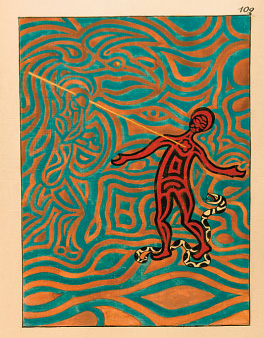

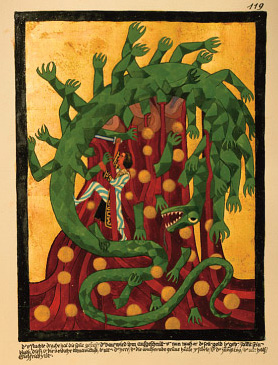
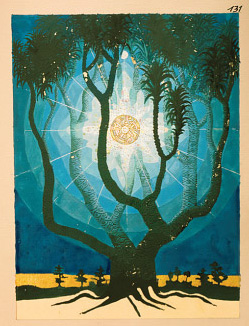
June 09, 2011
My top must-see documentaries in recent years

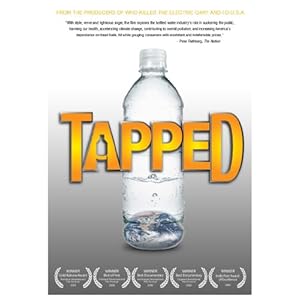

With nutritionally-depleted foods, chemical additives and our tendency to rely upon pharmaceutical drugs to treat what's wrong with our malnourished bodies, it's no wonder that modern society is getting sicker. Food Matters sets about uncovering the trillion dollar worldwide 'sickness industry' and gives people some scientifically verifiable solutions for overcoming illness naturally.
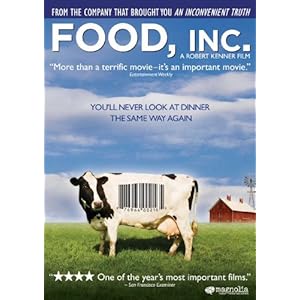
livelihood of the American farmer, the safety of workers and our own environment. Food, Inc. reveals surprising and often shocking truths about what we eat, how it's produced and who we have become as a nation.



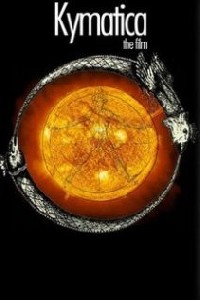 Evolution is a term to define only one organism and that's the self. The self is the universe, the self is the alpha and omega, god, and infinity, and that's the only thing that evolves because we are all part of the self. Nothing goes through an evolutionary process alone or without direct benefit to the whole.
Evolution is a term to define only one organism and that's the self. The self is the universe, the self is the alpha and omega, god, and infinity, and that's the only thing that evolves because we are all part of the self. Nothing goes through an evolutionary process alone or without direct benefit to the whole.
June 08, 2011
Alan Watts talks about enlightenment
June 03, 2011
P.B. Shelley- Invocation
May 30, 2011
Long over-due tribute to the magical country of Japan

Oh- how in love I am with the thousands of temples (a staggering 1600 Buddhist temples in fact) that surround this town and keep breathing life into it.

Hiking up and down the river with countless of elderly locals, I am in awe of how fit they are and how much spring their steps hold, in fact from what I see I have a strange vision in my mind that these people will probably die perfectly healthy, in a middle of a hike, out of choice and nothing else. Everybody greeting me as if I was a dear acquaintance. I breathe in the fresh air, the chorus of Konnichiwaaaaaa (hello), and the infectious smiles.
I am in love with the tea.












